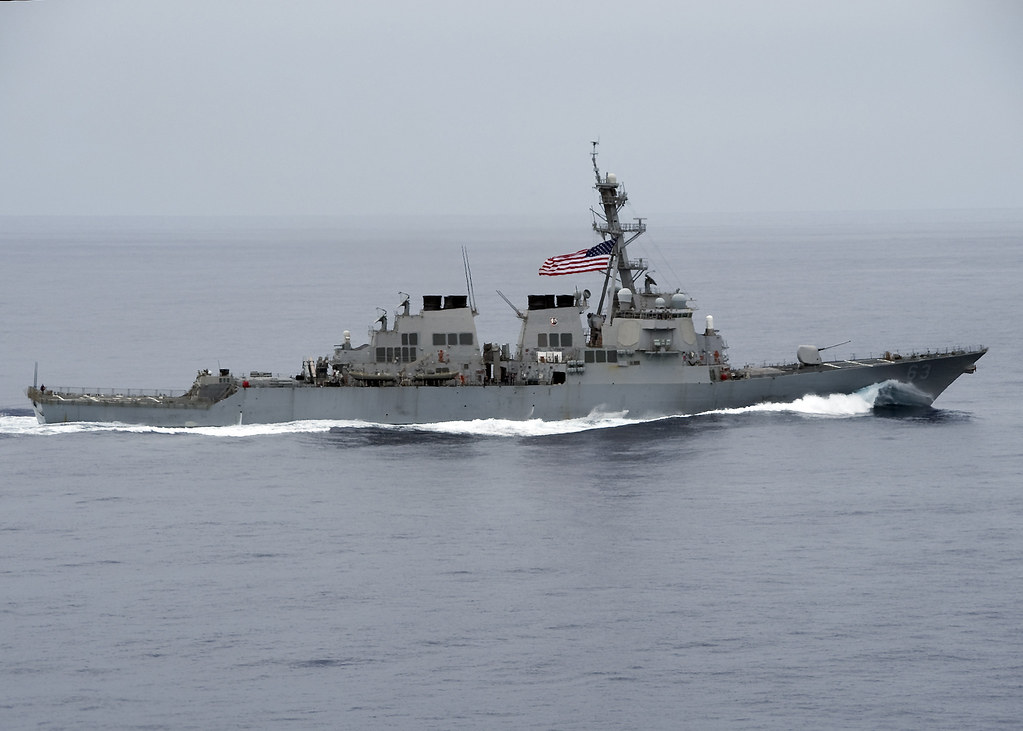
WASHINGTON: Angered by the service’s use of annual unfunded priority lists, House appropriators are poised to carve up the Navy’s fiscal year 2022 budget request in order to purchase a second DDG-51 Flight III destroyer.
“This represents a troubling trend of underfunding ship acquisition programs and then requesting the removed ship as the highest priority on the unfunded priority list,” the House Appropriations Committee wrote in a draft report accompanying the FY22 defense spending bill. The committee is set to mark up the defense bill Tuesday.
The “trend” lawmakers refer to in the report is a reference to last year’s Navy budget request, in which the service cut funding for a Virginia-class submarine and subsequently placed it on the annual unfunded priority list.
The UPLs traditionally have served as a wish list for the Pentagon and military services to display funding requests they did not or could not justify within the president’s budget.
Lawmakers do often fulfill unfunded requests when able, such as the second Virginia boat restored in last year’s spending bill. But placing such high-value assets – ones Congress are very unlikely to simply ignore – on those lists has angered the committee, which is now ready to make the cuts the Navy failed to find.
“Furthermore, removing the ship from the budget request breaks the program’s multi-year procurement contract, which adversely impacts the already fragile domestic shipbuilding industrial base,” according to the report. “Therefore, the Committee recommendation reduces multiple Navy programs to include an additional $1,500,000,000 for a second DDG-51 Destroyer.”
The savings come from hundreds of small decreases in various programs throughout the Navy budget.
Rear Adm. John Gumbleton, deputy assistant secretary of the Navy for budget, in a briefing with reporters earlier this year said there is a $33 million contractual penalty associated with the service not purchasing the destroyer. He defended the cut, saying it was “absolutely an affordability question.”
“The goal of the department was to balance the first priority, which is investment in [the Columbia-class submarine program],” he said. “This was clearly a hard choice with respect to what we could afford … The hard choice being that the Navy chose to invest the cost of the destroyer in a blended mix of readiness, modernization, and capability for the future.”
Although lawmakers may dislike the Navy’s choice to place a $1.5 billion warship on the UPL, it is not entirely shocking. The service has for years warned about the impending cuts necessary to fund the Columbia program. While lawmakers and the Pentagon have feuded on funding mechanisms and questions of where the money should come from, the clock has ultimately run out.
With a new administration that is unlikely to increase the defense spending topline and an unyielding commitment to fund Columbia no matter the cost, these kinds of major cuts and massive UPL requests could become more common.
Furthermore, the president’s budget request following an election cycle is traditionally influenced by the previous administration simply as a matter of practicality – the new administration does not have enough time to start from scratch. The FY23 request will be the first budget fully developed by the Biden administration.
Tangential to the Navy’s ability to buy new ships or subs is its ability to maintain those in service, and lawmakers are also taking action to begin monitoring the service’s progress on that front more closely.
“The Committee believes that the Navy must increase congressional confidence that the service will be able to maintain its vessels effectively and efficiently,” according to the report. The bill would direct the Navy secretary to provide a quarterly report to the committee on the maintenance statuses of Navy submarines. The spending bill would also direct the Navy secretary to provide a similar report on airframe repairs.
The Biden administration recently nominated Carlos Del Toro, a former Navy commander, to become the service’s chief civilian. Del Toro is set to receive a confirmation hearing before the Senate Armed Services Committee on Tuesday morning alongside four other senior Pentagon nominees.

